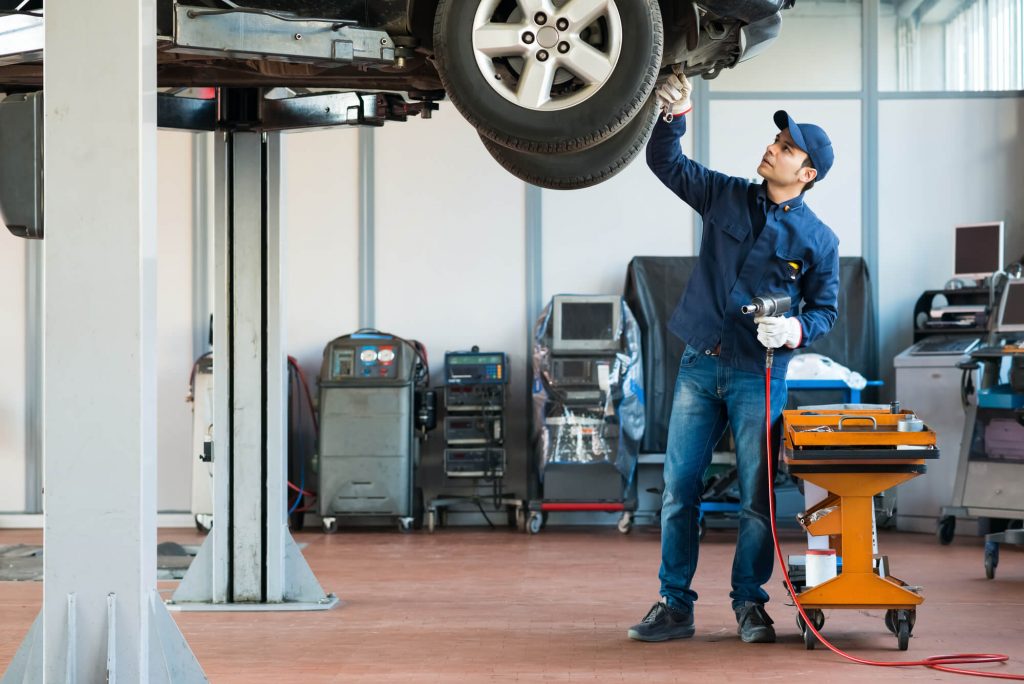How To Buy a Used Car in 2024

When you are looking for a used car, it’s important to have an idea of what you want. Do you need a family car? A work vehicle? Something sporty? Once you know what type of car you’re looking for, research the different models and makes that fit your needs. Buying a used car in the UK is not an easy task. It can be difficult to find one that has all of the features you want, and then there are the documents and papers! With so many different models, makes, and years available to choose from, it’s hard to know where to start the process.
In this post, we’ll talk about the steps involved in buying a used car and what you need to know if it’s your first time.
Basic Rules Before Buying a Used Car
While it might be tempting to choose a used car based on how much money you will save, buying a used car comes with its own set of risks. You must take some time to research cars available in your area before choosing one.
Here are some basic rules to keep in mind before buying a used car:
- Prepare your finances in advance – buying a used car can be an expensive process, so you need to have the money available. Make sure you have a realistic budget and stick to it.
- Follow the used cars market trend – If you’re hunting for a used car, browsing different websites is a fantastic approach to find out what’s available and what you can afford. You’ll learn whether you’re being charged too much, and there are plenty of options so you don’t have to pick something hastily if you don’t believe it’s the correct automobile for you. If you’re considering conventional versions, you’ll always be able to find plenty of alternatives if the price isn’t right.
- Choose a reputable dealer – If you are buying a car through an official dealership, make sure to check its reputation so you do not get scammed. If the dealer is reputable and trustworthy they will have no problem giving you all of the necessary paperwork.
- Check all the paperwork diligently – whether you purchase through a dealership, online or from a garage, make sure that the paperwork is all in order. If it isn’t, this should be your first signal to walk away and find another car since there’s probably something wrong with it which the dealer or seller doesn’t want to disclose!
- Make sure you are doing all of the necessary research on the used car before you start the buying process.
What to Look for When Buying A Used Car?
Now if you’re ready to make a purchase, read on for a few more tips on what to look for when buying your next used car!
#1. Check the vehicle’s MOT history and maintenance records
Every car in the UK needs certification to be driven on public roads, and this process is called MOT. This might not seem like something you need to look into when buying a used car, but it can tell you quite a lot about whether or not the vehicle has been maintained properly over its lifetime (i.e. if any major repairs have been carried out). You can also ask the seller for copies of any maintenance records to get an idea of how well the car has been taken care of.
Tip: Look up the MOT history and compare it against the car’s current mileage; if they don’t match, this could be a sign that the car has been in a major accident or that it has been driven for a long time without the engine being serviced. It is also worthwhile doing a car tax check.
You should also consider checking your car’s MOT history before you buy it – this will tell you if the vehicle has ever had any issues, and how well it was taken care of in general. You can get copies of an MOT certificate online or from the DVLA.
#2. Examine the bodywork and chassis for any damage
One of the most important things you need to do when inspecting a used car is to check for any damage. This includes checking the bodywork for dents, scratches and rust; looking underneath the car for any leaks or signs of wear and tear; and checking the tyres for tread depth and age.
Tip: If possible, take the car for a test drive and see how it handles; this will help you determine if there is any damage that isn’t immediately visible.
If you’re not sure how to check for signs of damage, ask the seller to run a used car check on the car for you so that they can point out any issues.

#3. Are the wheels and tires in excellent working order?
Just like the bodywork, you need to examine the tires for signs of damage. Make sure they are all in excellent working order and have good tread depth – new tires can be very expensive so it’s not advisable to buy a car with bad ones!
Tip: If possible, take your vehicle out on different roads during the test drive; this will give you an idea of how it handles in various conditions.
If the wheels and tires don’t look like they’re in good condition, ask for a used car check before making your purchase. This will allow you to see if any issues aren’t immediately visible from just looking at them.
#4. Check the oil level
It’s always a good idea to check the oil level before making your purchase – this will ensure that the engine is in good condition. Just like a regular car, you need to check the oil level to make sure that it is at an acceptable level. If it isn’t, this could be a sign that there is something wrong with the engine and you should walk away from the deal.
Tip: The easiest way to check the oil level is to find the dipstick (usually located underneath the car), pull it out, wipe it off and then put it back in. You should be able to see the oil level on the dipstick – if it’s below the “min” line, you’ll need to add more oil.
#5. Is the engine difficult to start?
One of the biggest signs that there is something wrong with a car is if it’s difficult to start. If the engine takes a long time to turn over or if it doesn’t start at all, this could be a sign that there is an issue with the ignition system, the fuel pump or even the battery.
Tip: Try turning on the engine and then letting it turn off again – this is a good way to see if the battery has any issues. You can also check all of the car’s lights (including those on the dashboard) as well as the radio, AC and heater; these should come on when you first turn on your vehicle.
If there are problems with starting the engine, it’s best to walk away from the deal and find another car.
#6. Take the car for a lengthy test drive
One of the main advantages of buying a used car is that you can test it out before making your purchase. If possible, take the vehicle for a lengthy drive to make sure everything works perfectly – this will help determine if there are any issues with the transmission or suspension system.
Tip: A good way to tell how well your car performs is to take it for a drive on different types of roads; this will help you determine if the car is good for long-distance drives or just city driving.
If you’re not happy with how the car performs during the test drive, don’t buy it! There are plenty of other cars out there that will be a better fit for your needs.
#7. Consider running a used car check
One of the best ways to ensure that you’re getting a good deal is to run a car reg check on the vehicle before making your purchase. This will allow you to see if there are any hidden issues with the car that aren’t immediately visible.
Tip: If possible, once you have run a car tax check, try get an inspection by a professional mechanic – this will allow them to point out any potential problems with the vehicle.
If there are issues with the vehicle upon running a used car check, don’t buy it! Walk away from the deal and find another car instead.
Conclusion
When buying a used car, it’s important to be vigilant and look for any potential problems. By following these tips, you’ll be able to avoid getting scammed by sellers and find the perfect car for your needs. Another important tip is to always run used car checks on the car before making your purchase. This will help you avoid any hidden problems with the vehicle. Happy shopping!
Frequently Asked Questions
- How can I find a reliable used car?
When searching for a reliable used car, there are a few key steps you can follow. Start by researching the make and model you’re interested in, paying attention to consumer reviews and reliability ratings. Look for vehicles with a well-documented service history and consider getting a pre-purchase inspection by a trusted mechanic. Additionally, you can check the vehicle’s history report using Reg Car Check.
- What should I consider when setting a budget for a used car?
Setting a budget for a used car involves considering various factors. Start by assessing your financial situation and determining how much you can comfortably afford as a down payment and monthly payments if you plan to finance the car. Don’t forget to account for additional expenses such as insurance, maintenance, and fuel costs. Research the market value of the specific make and model you’re interested in to ensure your budget aligns with realistic expectations.
- Should I buy a used car from a dealership or a private seller?
Both dealerships and private sellers have their advantages and disadvantages. Dealerships often offer more extensive inventories, certified pre-owned options, and financing options. They also provide more legal protections for buyers. On the other hand, private sellers may offer lower prices, more room for negotiation, and a more personalised buying experience. Whichever option you choose, it’s important to do thorough research, ask questions, and inspect the vehicle carefully before making a purchase.
- What documents do I need to buy a used car?
When buying a used car, you’ll typically need certain documents to complete the transaction. These may include your driver’s licence or other identification, proof of insurance, proof of residence, and a method of payment. The specific requirements may vary depending on your location.
- Should I get a vehicle history report before buying a used car?
Obtaining a vehicle history report is highly recommended when buying a used car. These reports provide valuable information about the vehicle’s past, including any reported accidents, title problems, odometer discrepancies, and previous ownership history. Checking the vehicle’s history can help you make an informed decision and avoid potential issues in the future.
- How do I negotiate the price of a used car?
Negotiating the price of a used car can be an effective way to secure a better deal. Start by researching the market value of similar vehicles to understand the fair price range. When negotiating, be prepared to walk away if the seller isn’t willing to meet your price or negotiate further. Focus on factors like the vehicle’s condition, service history, and any necessary repairs or maintenance it may require. Remember to be polite, firm, and patient during the negotiation process.
- Is it necessary to have a mechanic inspect a used car before buying it?
Having a trusted mechanic inspect a used car before buying is highly recommended. A professional inspection can uncover any underlying mechanical issues or potential problems that may not be apparent during a test drive. The mechanic can check the vehicle’s components, engine, brakes, suspension, and overall condition, providing you with a comprehensive evaluation. This can help you make an informed decision and avoid buying a car with hidden problems.
- What should I look for during a test drive of a used car?
During a test drive, there are several key things to pay attention to. Start by checking the vehicle’s overall comfort, visibility, and ergonomics. Test the brakes, acceleration, and steering responsiveness. Listen for any unusual noises or vibrations and pay attention to the vehicle’s handling and suspension. Test the various features and systems, including the air conditioning, heating, and audio system. Additionally, consider the car’s manoeuvrability and how it feels on different road surfaces.
- Can I finance a used car purchase?
Yes, it’s possible to finance a used car purchase. Many banks, credit unions, and financial institutions offer auto loans specifically for used cars. The terms and interest rates may vary depending on your credit score, income, and the specific vehicle you’re interested in. It’s advisable to shop around and compare loan offers from different lenders to find the best terms and rates. Having a pre-approved loan can also give you a stronger position during price negotiations.
- What should I do after buying a used car?
After buying a used car, there are a few important steps to take. Make sure to transfer the title and registration into your name. Update your insurance policy to include the new vehicle. Consider scheduling any necessary maintenance or repairs based on the inspection report. Familiarise yourself with the car’s owner’s manual and maintenance schedule. Finally, enjoy your new ride responsibly and keep up with regular maintenance to ensure its longevity.






